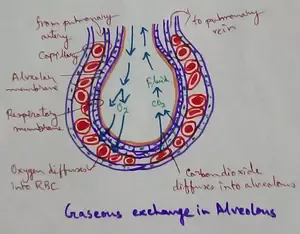Special Uses of some Prepositions
Before dealing in detail with the special uses of some Prepositions, let us understand what are the primary function of a Preposition in a sentence structure?
Prepositions are words that are used to link the Noun or Pronuon to another part of the sentence.
Examples: On, It, At
The primary function of a Preposition is to indicate time, direction or location of an object.
Prepositions invariably must contain a Subject and verb before it and follow it up with another Noun or Pronoun, not a verb.
Examples:
· He put the eggs in the wrong basket.
· She is going to her hostel in December.
· I’ll meet you at sharp 6.30 p.m.
Special Use of In and At
Both “in”/ “at” can be used for cities, towns and villages.
“In” is used for a general location whereas “At” points out to a specific location / point.
Examples:
· My sister lives in Delhi.
· Our plane stopped at Delhi on our way to Chandigarh.
“At” is used to talk about group activities or shops or workplaces, specifically
Examples:
· I bumped into him at a party.
· I saw him at the mall.
“In” is used with the names of streets and “at” for the specific House Number.
Example:
· I live in Dumdum area.
· I live at 85, R.N Guha Road.
“In” is used before a Noun to denote a certain period of time where it is used in sense of “within”
Example:
· I shall be back in a an hour.
“By”
“By” means of something or someone and is mostly made use of in Passive sentences.
Example:
· Do you usually travel by train?
· He was beaten to a pulp by me.
· The letter was written to him by Raghav.
“With”
With means accompanied by someone or something.
Example:
· I will always be with you.
· I have brought a pie with me.
· H is playing with his toys.
· It is an add on with the original product.
“On” is also used to denote on top of a surface.
Example:
· The eggs are kept on the table.
· I have to climb on the rooftop to reach there.
“Till” and “Until”
Both are used to denote time
Example:
· We waited till 2 p.m. for the show to start.
· They slogged until the project got completed.
“Since”
It is used before a Noun / phrase to denote some point of time and is preceded by the verb in the perfect tense.
Example:
· I have not seen him since last summer.
· It has been three years since we parted.
“Before” / “After”
They are used to denote the time period of an event or an action specifically in relation to another thing.
Example:
· We cannot leave the party before 1 p.m.
· We left after the show ended at midnight.
(Other prepositions of time are throughout, during, around, about)
“Across”
Denotes movement from one place to another.
Example:
· We moved across six continents in the last 10 years.
· He swam across the turbulent river to fetch help.
“Through”
Denotes moving inside something and out from the other end.
Example:
· The thread goes through the needle.
· I can look through the glass.
English Grammar and Composition
From Special Uses of some Prepositions to HOME PAGE
Recent Articles
-
Formed Elements of Blood | Erythrocytes | ESR |Leukocytes |Neutrophils
Jan 15, 26 01:25 AM
Formed elements formed elements are constitute about 45 % of blood afeias haematocrit value packed cell volume mostly of red blood corpuscles and are of 3 types- erythrocytes, leukocytes and blood pla… -
What Is Plasma? | Blood Plasma | Proteins | Nutrients | Cholesterol
Nov 07, 25 10:29 AM
Blood is a mobile fluid which is a connective tissue and is derived from the mesoderm like cell any other connective tissue. Colour of blood is reddish and that flows inside the blood vessels by means… -
Disorders of Respiratory System | Tuberculosis | Pleurisy | Emphysema
Oct 28, 25 11:39 PM
Tuberculosis is very common disease and is caused by a type of bacteria called Mycobacterium tuberculosis. This disease causes different trouble in the respiration and infection of several parts of th… -
Regulation of Respiration | Respiratory Centres | Inspiratory Area |
Oct 14, 25 12:13 AM
Respiratory Centre is the area that controls the rate of respiration and it is observed to be located in medulla oblongata and pons. Respiratory Centre has the following will dispersed components like… -
Explain Transport of Gases | External Respiration | Tissue Respiration
Oct 09, 25 11:35 PM
In humans gaseous exchange is completed in the following ways the steps are - External Respiration or Breathing - Breathing in false taking in of Oxygen and giving out of carbon dioxide in the body. M…





New! Comments
Have your say about what you just read! Leave me a comment in the box below.